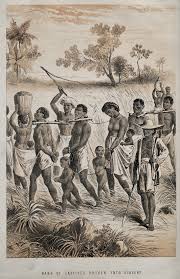Ancient Roman Slave Names: Slaves were rarely given surnames when being named by their owners. A first, or “given” name was all that most slaveholders would acknowledge most enslaved persons by.
Upon registration, in papers relating to the sale or transfer of ownership of a slave, and in other legal documents, few slaves were allowed the dignity of being identified by anything other than a single name.

Roman Slave Names facts
Those few surnames which do appear in legal documents are usually found in documents dated after 1788, the point at which Pennsylvania began to require registration of the children of slaves.
Surnames appear with increasing frequency in slave registrations during the first two decades of the nineteenth century, although even in the final few years of registrations, most returns still did not mention the surnames of those slaves being recorded.
That slaveholder considered these surnames illegitimate, or an alias underscores the belief that these were names chosen not by the slaveholders, but by the slaves themselves, perhaps as a way to counter their status. The surnames also do not appear to have any relation to the slaveholder to which the slaves were associated.
Slave Surnames
If indeed the slaves chose their own surnames, they did not, as commonly believed, choose the surnames of the slaveholders associated with them. A look at the known slave surnames shows that most were commonly found surnames in the local area: Miller, Martin, Smith, Butler, Stewart, George and Jenkins all show up in Dauphin County.
Examples of ancient Roman names
Cogan, Harris, Armstrong, Collins, Parker, and Green are slave surnames found in Cumberland County. Lancaster County had slaves named Lewis, Jackson, Hunt, Brown, Bailey, Myers and Peters.
The preponderance of common surnames among slaves and the belief that those surnames were chosen by the slaves themselves suggests that slaves chose surnames with a desire to fit into everyday society, and not to be set apart from it.
Even though slaves were assigned slave names by slaveholders, the slaves did not necessarily accept and use those names, especially in the company of anyone other than the slaveholder. Many slaves who had lofty-sounding mythological names, or belittling informal names, used common names of their own choosing in private.
Ancient Roman Slave Names
Runaway slaves, in particular, were known to change their names. In 1778, a 36-year-old Bucks County slave who was captured on suspicion of being a runaway gave his name to the jailor as Tim, but the jailor determined that his slave name was Ben. Tim was in the company of another slave “who calls himself Harry, sometimes WILL,” according to the advertisement placed by the jailor.
That same year a slaveholder placed an advertisement in the Pennsylvania Packet seeking the return of “Sukey Brown,” who had run away with her husband James, a free Black. “Sukey,” however, was by that time going by the name of Lucy Brown.
More info on- Roman female names and meanings



